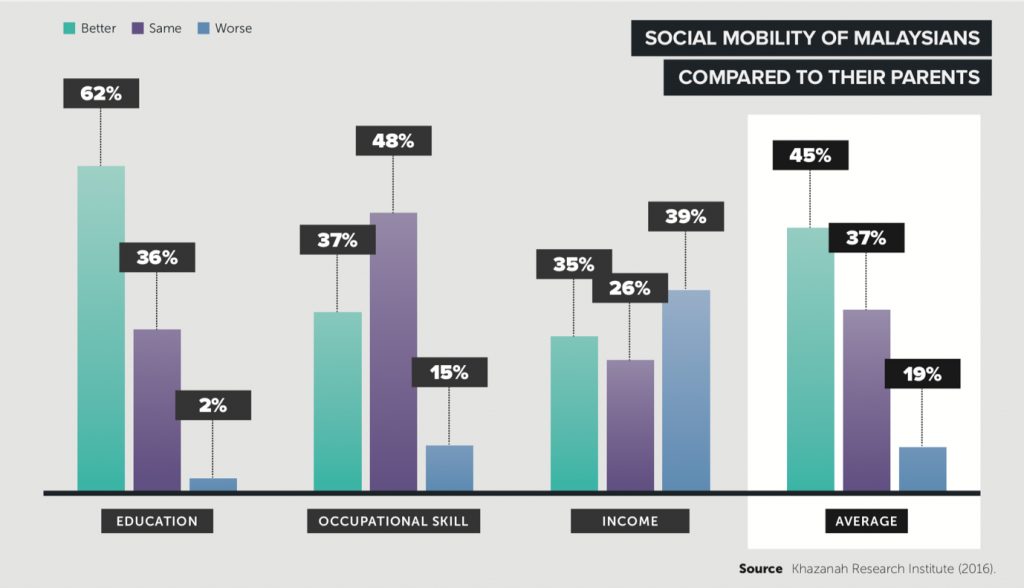Malaysia Population Research Hub

Unaffordable Housing Price
The country has gone through a rapid urbanization process where the percentage of urban population has increased rapidly from 50% in 1990 to 74% in 2014 and is projected to increase to 80% by 2030 and 86% by 2050 (UN, 2014; Martin Prosperity Institute, 2017). This has led to the rising prices of housing in the country.
If the median-multiple ratio indicator introduced by the United Nations Center for Human Settlement is used to make comparisons between countries, the price of housing in the country is higher than developed countries such as Ireland (3.4), United States of America (3.6), Canada (3.9) and Japan (4.1).
However, it is lower than the United Kingdom (4.6), Singapore (4.8), Australia (5.5) and New Zealand (5.9) (Malaysia: 4.4) (Khazanah Research Institute, 2015; Demographia, 2017). The increase in housing prices in the country will force couples who have children to stay with their elderly parents.

Increasing Number of Commuter Families
A rise in the economy and cost of living drives families to work harder at the expense of the family. Majority families will increasingly need dual incomes to sustain themselves financially. Married couples may need to stay apart from each other to meet family economic demands hence encouraging the formation of commuter families. There are family members, especially fathers who migrate either to a city, state or another country solely to earn a better income to support their family members. Findings from the Fifth Malaysian Population and Family Survey (MPFS-5) found that 6.9 percent of women who are currently married lives apart from their husbands due to employment factor.
In addition, high housing price in cities offering job opportunities has forced people to stay away from their workplace. They cannot afford to live close to the workplace due to the over- priced living quarters. Therefore, staying away from the workplace, they had to spend a lot of time commuting to work.
According to the World Bank (2015), residents around the Klang Valley spent more than 250 million hours a year in traffic congestion.
Longer commutes are significantly associated with an increase in commuting stress, leading to a higher frequency of reports of ill health and commute displeasure while affecting commuters productivity. Moreover, time spent at traffic from one place to another, would reduce the time spent with family members at home and indirectly may affect the well-being of the family.
Limited Sources of Family Social Support
The work demands of young or millennial generation will cause them to be unable to provide adequate social support to elderly parents. Along with the reduced family size (average size of households in 1991: 4.8 persons; average size of households in 2014: 4.0 persons), children in the future will have either one or no other siblings, this will make them more likely to send their elderly parents to the care centre due to the lack of family caregivers. Limited financial resources among the millennial will also be another factor that causes them to send their elderly parents to the care centre.
